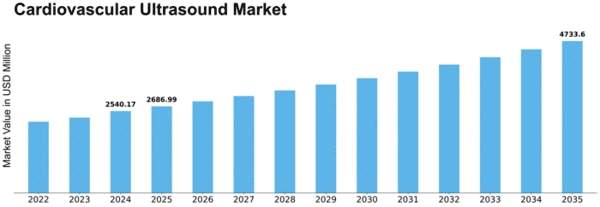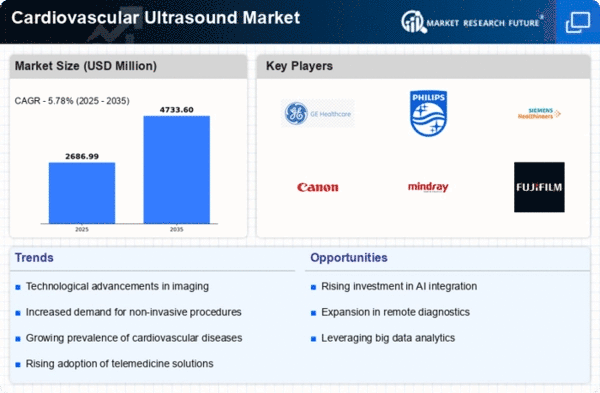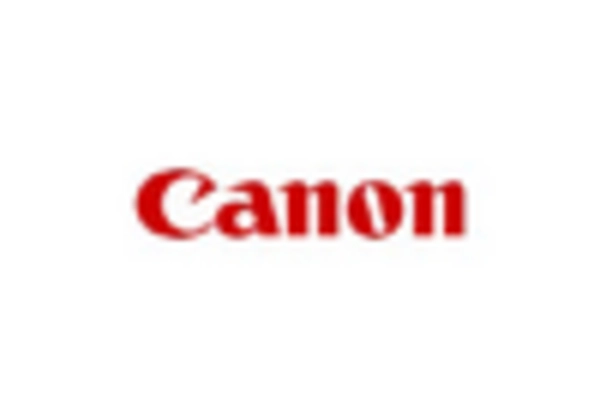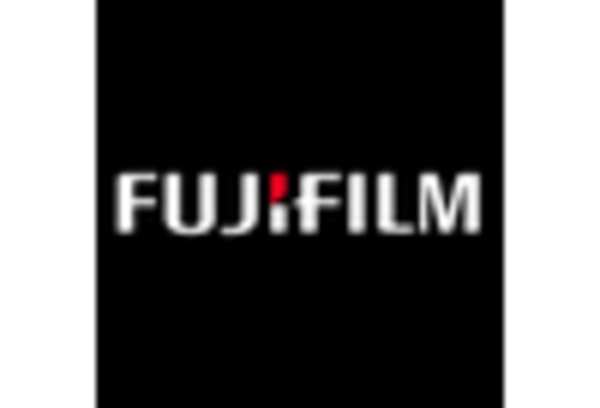Cardiovascular Ultrasound Size
Cardiovascular Ultrasound Market Growth Projections and Opportunities
The Cardiovascular Ultrasound market is impacted by a number of factors which, among others, orchestrate its expansion and position in the healthcare domain. The higher rate of CVDs is the one of the prominent factors of additional demand for the given treatment. Since heart diseases increase their frequency as a group of conditions, the need for diagnostics authorized systems like cardiovascular ultrasound systems becomes more profound, which results in inventing overlooking subsystems in detection and management of diseases of cardiovascular system.
Technological advancements are undoubtedly playing a vital role of rising the Cardiovascular Ultrasound market. The medical developments concerning ultrasound in cardiovascular systems have continued in parallel with the innovations of the new technologies, such as 3D and 4D, boosting the diagnostic power of cardiovascular ultrasound machines. Through these developments doctors are capable to visualize heart structures and functions with higher precision, thus, it becomes easier for medical specialists to differentiate between diseases and to choose a proper treatment.
The other equally powerful with this factor is aging. As the mortality rates move in favor of older people, cardiovascular disease prevalence grows to considerable numbers. With its speedy, accurate and reliable validation capability, the cardiovascular ultrasound system is now recognized as the instrumental diagnostic tool for assessing cardiovascular health in the elderly, which in turn leads us to the increased demand of such equipment.
The priority for the prevention of cardiovascular diseases and the early diagnosis of the associated conditions is encouraging the adoption of cardiovascular ultrasound based systems. Worm screening ultrasounds frequently help detect the likely cardiac problem on a timely basis, as treatment can be planned before the symptoms emerge. This strategy based on anticipated health issues has become a trend in the local and global healthcare system, and another reason for the market growth.
The acceptance of point-of-care ultrasound is a present intense development which has a massive impact on the Cardiovasualar Ultrasound market. Portability and the way in which ultrasound machines can be used conveniently are the features that make them the ideal option in different medical settings such as the emergency wards, clinics or ambulatory care. They offer cardiac evaluations that are fast and thus helps in decision making and patients receive better care due to this rapid assistance in a variety of healthcare settings.
The global price pressures on healthcare systems have inspired the shift towards less costly diagnosis technique, whereas cardiovascular ultrasound system may meet the criteria. In contrast with the invasive strategies of the cardiac ultrasonic examining, the non-invasive and cheaply comfortable measures of cardiac health assessment are offered. They compete for market in cardiovascular ultrasound to avail examination and proper treatment. Hence, cost-effectiveness is crucial in healthcare systems with limited resources.



















Leave a Comment